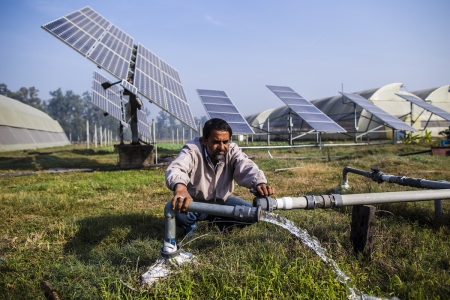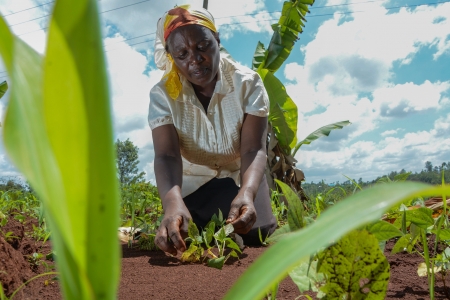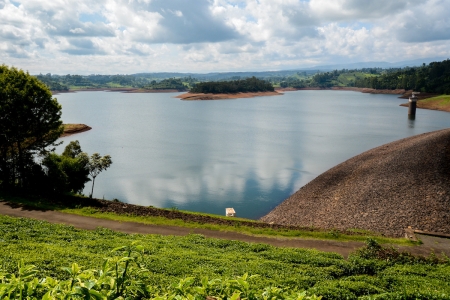As part of WLE's partnership with The Economist Events' Sustainability Summit this March in London, the Thrive blog is publishing a series of posts that discuss the role science plays in catalyzing shifts toward sustainability in the private sector and beyond. In this blog post, journalist Fred Pearce reflects on the discussions that took place during the summit.
It was an embarrassing moment. Chairing a breakfast meeting to open a Sustainability Summit in the City of London, Donnie Smith, CEO of American meat giant Tyson Foods, was fulminating about the need to reduce food waste. But as he summed up, he spotted the state of the table before him. Most of the croissants, strawberries, slices of toast, meat balls and eggs, he observed sheepishly, remained untouched.
The boss of the $40 billion food business had been complaining that a third of the food grown in the world’s fields ends up uneaten. On the table in front of him, that figure looked more like two-thirds. But at least he had noticed.
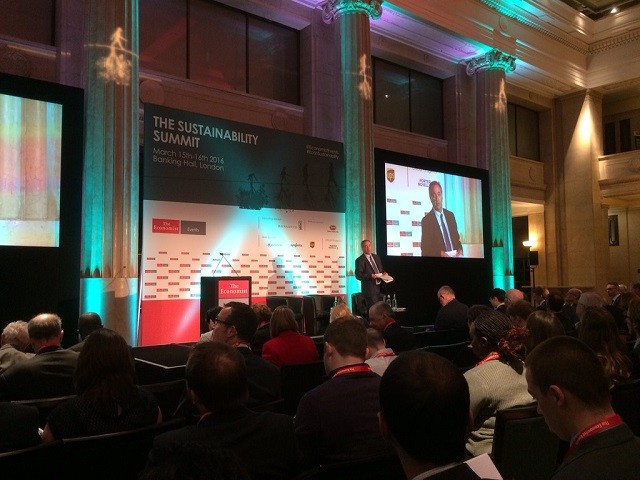
The problem that won’t go away
Judging by the two-day meeting of financiers and business titans, that’s roughly where the masters of the universe have got to with sustainability:
They can see the problem. Their businesses are wrecking the planet, and wrecking the planet is bad for business.
They know they have to do something about it. That’s why the event’s organisers at The Economist came up with the subtitle “Adapt or Die?”, albeit with a question mark at the end. That’s why a summit on sustainability now attracts not just corporate social responsibility managers but also CEOs. On this occasion the boss of Tyson was joined by another agri-business behemoth, Monsanto’s President Brett Begemann.
But figuring out what sustainability might mean, and how to achieve it while remaining billion-dollar businesses, is looking harder. If, as the corporate mantra goes, you can only manage what you can measure, then what exactly are the metrics for sustainability? And can they be fitted into the world of corporate accountability and profitability.
Might cutting out food waste cut out profit too?
Three big goals dominated the event. Halting climate change; creating food systems that can double food production on the same land and without using more water; and being part of meeting the myriad social and humanitarian targets in the newly agree Sustainable Development Goals.
Climate change, at any rate, now has a script: bringing down greenhouse gas emissions through reducing the carbon intensity of almost every activity on the planet. Many companies are signed up to this. In December, Monsanto announced its intention to make its operations carbon-neutral by 2021.
Some already operate internal carbon markets aimed at bringing down emissions. Investors see the introduction of universal carbon pricing by governments as the vital incentive needed to bring the rest on board.
But sustainability in the global food system is much more fuzzy. Unlike fixing climate change, there are no agreed targets, still less any common image of what a sustainable food system would look like.
On the evidence on display at the summit, agri-industrialists with a sustainability pitch still lay out their vision of a green food future in remarkably conventional terms. Terms designed largely to promote things they are already good at. It translates mostly into increased farm yields. If we increase yields, we can provide more food on the same land area, thus saving natural ecosystems.
Monsanto’s Begemann had his metric to hand. “We believe no-till, cover crops and high productivity can create climate-neutral crops,” he said.
His recipe was not just for big farms. Smallholders needed the hybrids seeds and GMOs that his company could provide in order to increase yields. And he made a pitch for “digital agriculture”, to replace conventional one-size-fits-all crops from the green revolution era with systems tailored to local soils and climate.
It is an enticing package. But a narrow one. None of the food companies at the summit spoke about investing in natural ecosystems, or in finding ways to nurture water supplies or ecosystem services like the pollinators vital to crops. Where, for instance, was agroforestry in this model?
Nor did their vision for sustainable intensification of agriculture offer anything on social sustainability. Would it create refugees or hasten urban migration? Would it help or hinder delivering the SDGs?
And they conveniently conflated the goal of short-term economic efficiency with the planet’s need for resource efficiency, which, as leading environmental economist Paul Ekins of University College London told the event, is a very different thing.
Market overhaul needed for green investments to flourish
Corporations like Monsanto and Tyson are at the early stages of a long learning curve. But the meeting displayed some remarkable conversions among investors, who are often seen as the real villains in creating sustainable businesses.
Leading the way were those in charge of investments at pension funds and insurance companies, which both have a clear interest in taking a long view of sustainability. Pension companies, after all, are looking for investments with a good return in decades hence – when their clients start claiming their pensions. And as one insurance executive put it: “A four-degree world is uninsurable.”
From that longer-term perspective, some see a simple fit between sustainability and profitability. Per Bolund, a finance minister in Sweden, a country whose public pension funds are at the forefront of investing in sustainability, insisted that low-carbon companies are already more profitable.
But Steve Waygood of Aviva, one of the world’s biggest insurance companies, said that was too simplistic. The structure of the current market system still blind-sides sustainability by rewarding short-term profit and penalising long-term thinking. While environmental and social “externalities” go unpenalised, investors remain free-riders in the planet’s destruction.
“Capital markets are not rewarding investors for doing sustainability,” he said. “There is $300 trillion [of investment] in the global market and all of it pretty much is ignoring the fact that we have only one planet.”
“We have to change market structures,” he said. Only governments could do this, by using taxes and subsidies, trade rules and regulation to penalise the bad and reward the good. “The tragedy of the commons can be solved by properly structured markets,” he concluded. We must hope so.
Where to start? A tax on uneaten breakfast croissant? Now there is an idea.



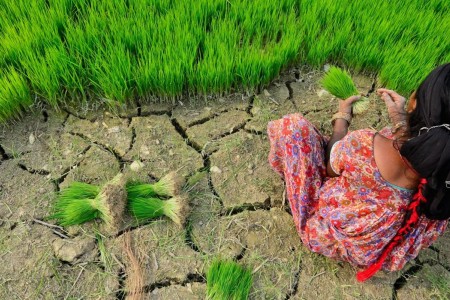
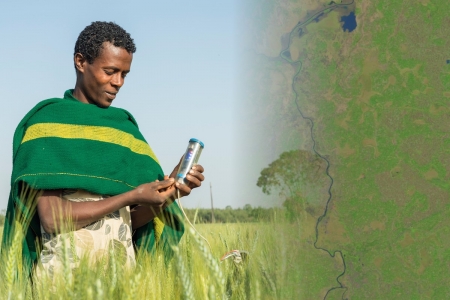


/index.jpg?itok=EzuBHOXY&c=feafd7f5ab7d60c363652d23929d0aee)


